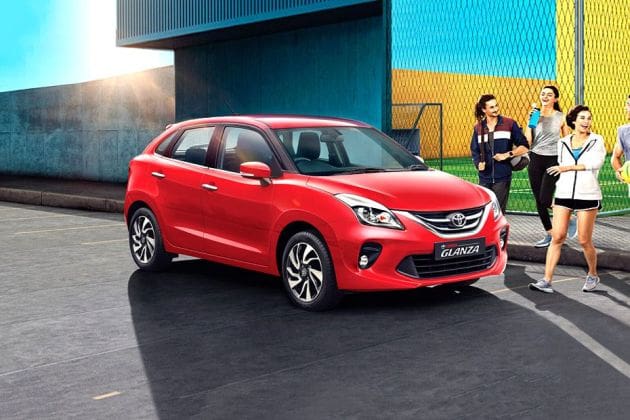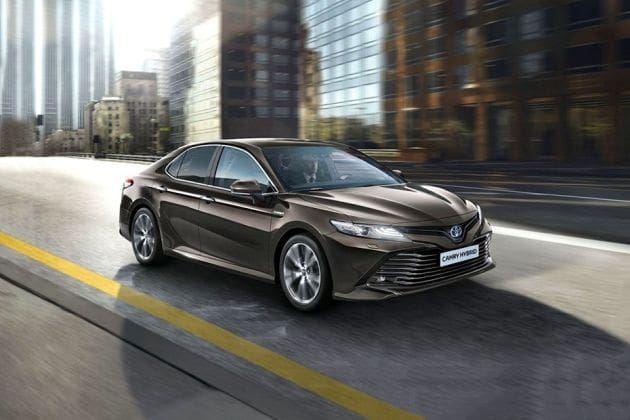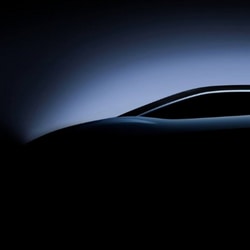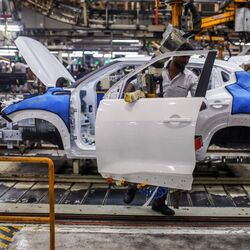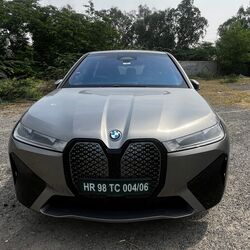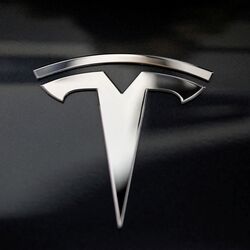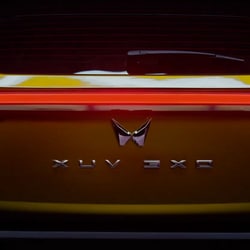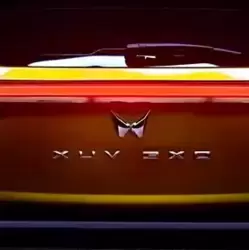Toyota says taxation, regulation need to run parallelly for creating demand
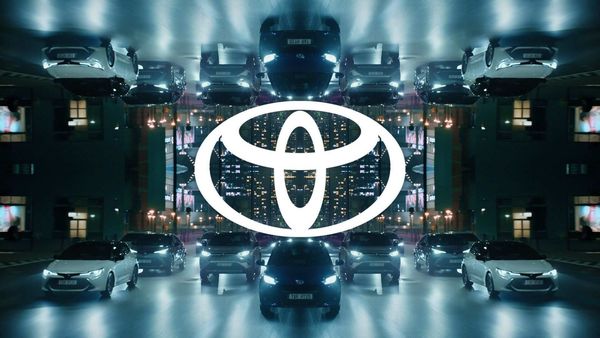

Taxation and regulation need to run parallelly and if they go in opposite directions it is difficult to create demand, while fresh investments "never ever gets feasible" with frequent change in policies, according to a top company official of Toyota Kirloskar Motor.
The company, which is an arm of Japanese auto major Toyota Motor Corporation, said while India remains an important market from a global strategy point of view, bringing new models with the latest technology would depend on whether the market demand in the country gives it the feasibility to do so. "We have to carefully look at the taxation system with regulation system parallel. If the taxation goes another direction, which is not supporting or not creating demand it is very difficult," Toyota Kirloskar Motor Managing Director Masakazu Yoshimura told PTI.
Also check these Vehicles
Also Read : Toyota Kirloskar Motor reiterates its commitment to Indian market
On the other hand, if the regulation system heads towards the other direction to meet new environmental and safety norms, it adds further to the cost of vehicles. Yoshimura was responding to a query on Toyota's plans to bring new products from its global portfolio in India. "Toyota, as you see globally, we are introducing newest, latest technology cars. Corollas, Yaris, GR Yaris, Supra, whatever cars we are producing, but if the market demand gives us the feasibility to introduce those cars we can always bring (them) in India," he said.
The Indian auto industry has consistently sought reduction of GST on automobiles saying the current level of 28 per cent plus cess ranging from 1 per cent to 22 per cent depending on vehicle type and engine capacity, is making vehicles unaffordable, while transitioning to BS 6 emission norms from April this year in a very short span has increased vehicle costs. When asked if Toyota is ready to plunge into India's electric vehicle (EV) market, Yoshimura said the company would do so only when it becomes feasible. "Even taking a risk at the moment is very huge. So we will see what will become feasible...," he added Yoshimura, however, said Toyota is investing over ₹2,000 crore this year to prepare for production of parts of 'electrified vehicles' at its plant in Karnataka in order to be ready as there is a shift in "demand structure" of automobiles with such vehicles gaining traction.
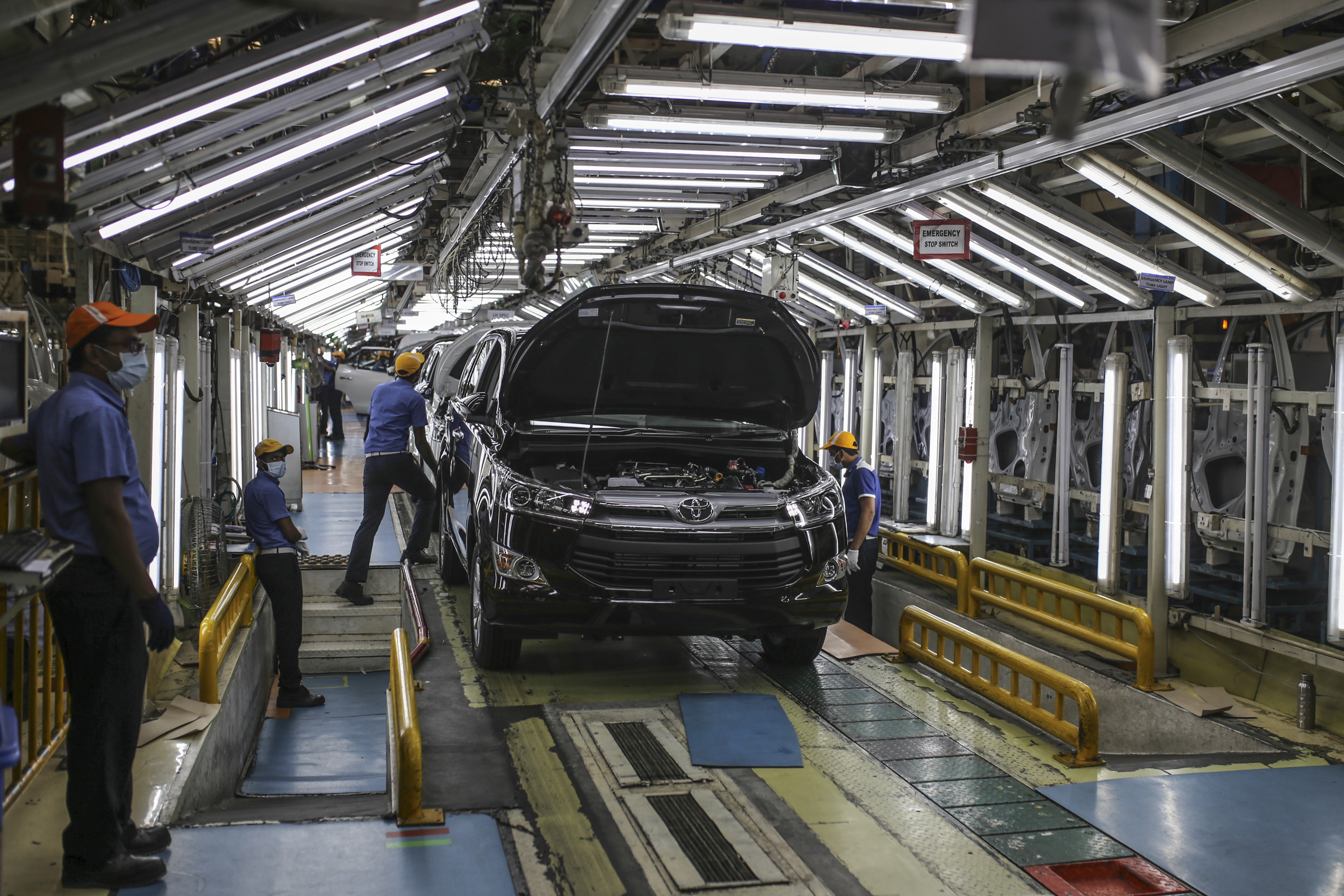

With the new investment the production capacity of 3 lakh units annually will not increase so much but the structure of manufacturing capability will be shifting towards that new technology area, he added. Seeking government policy support for strong and plug-in hybrids, Yoshimura said at the moment Indian government is pushing for battery electric vehicles and the key to its success would be on its popularisation.
"How do we create demand?...We have to reduce the cost, we have to bring in new tech, and taxation and regulation systems, which all have to be longer term. If it is short term, changing quite frequently, I think investment never ever gets feasible. Then you can't bring any investment," he said adding "a consolidated joint harmonised effort is required".
Also Read : Toyota, Maruti among many to highlight pain of high taxes in auto sector
Commenting on India's EV market, he said when it comes to development of electric powertrain and battery electric vehicles (BEVs) currently it is at a nascent stage in India with limited manufacturing capability. India is currently dependent on imports of parts for BEVs, although the government is supporting to locally produce, he said adding to reduce import dependence, India needs creation of a robust manufacturing ecosystem for EV parts along with measures to ensure greater customer acceptance of BEVs.
"Furthermore it is essential to create investment viability for manufacturing of EV parts, such as motors and Li-ion batteries...," he said. Moreover, EVs have been facing additional challenges in India additionally owing to lower customer acceptance as the resale value for EVs is "horribly scary, nothing", he said citing the example of what has been witnessed in New Zealand. "People know that. Consumers in India are very rational. So all aspects (of EV) must be looked at very carefully," Yoshimura said.







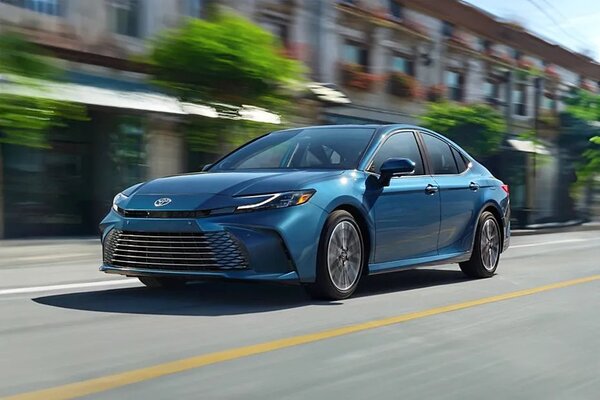
 2487 cc
2487 cc Petrol
Petrol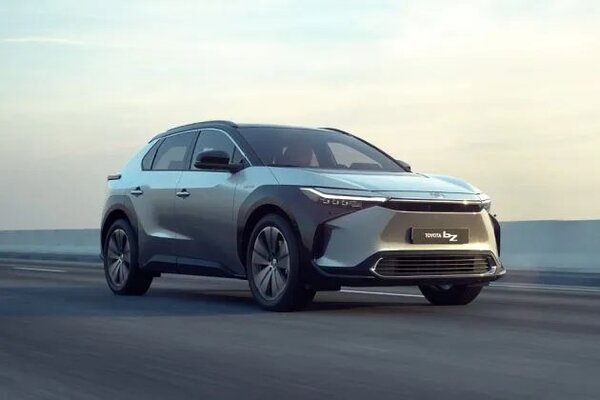
 72.8 kWh
72.8 kWh 405 Km
405 Km